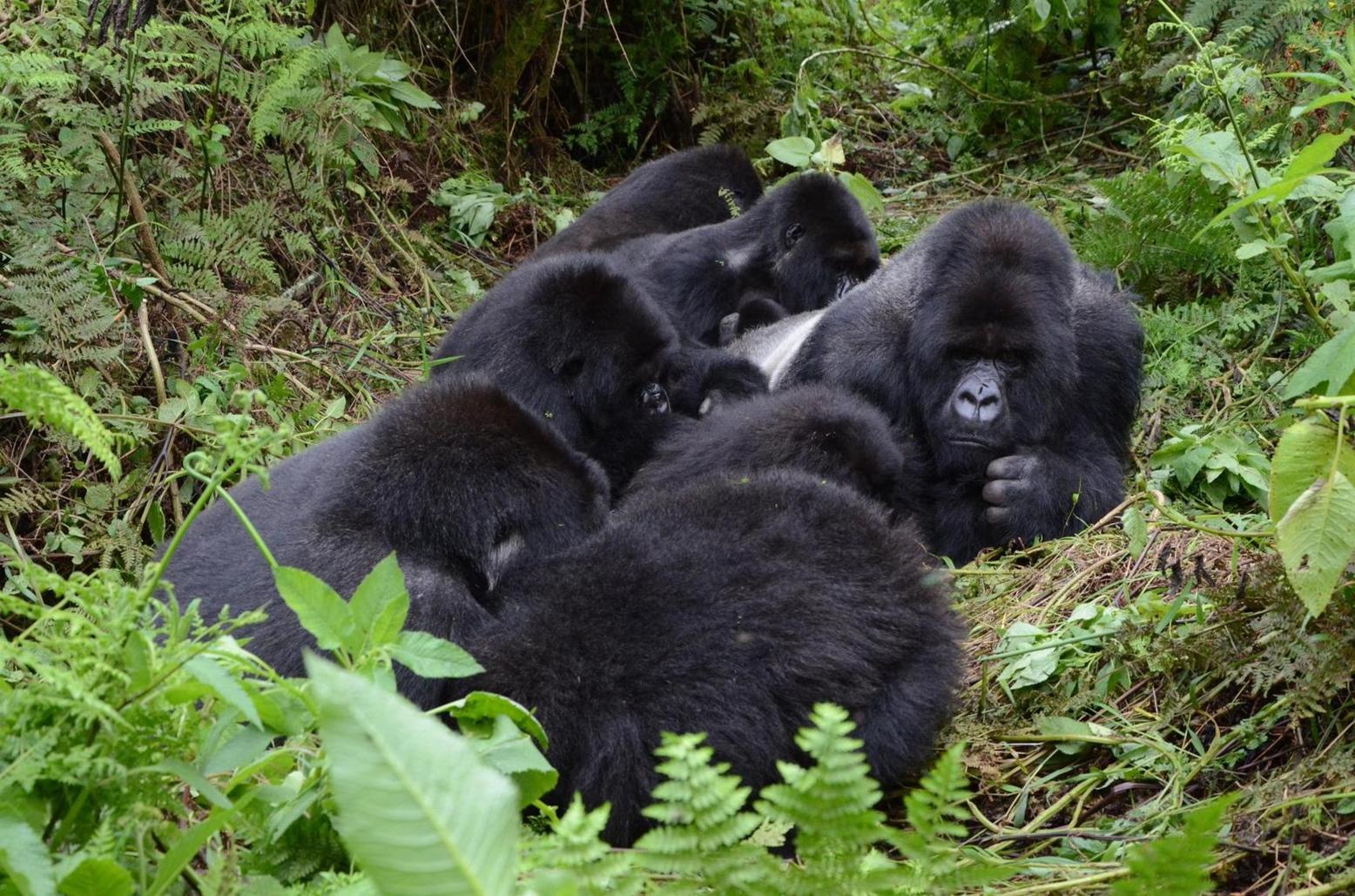Africa-Press – Rwanda. Gorillas are closely related to humans with similar anatomical and physiological features, and this makes them vulnerable to many of the same diseases.
And due to the fact that they live in the wild, gorillas have not developed the necessary immunities to some diseases as opposed to humans. Therefore, first time exposure to an illness or virus that is relatively innocuous to humans may devastate an entire population, according to the International Gorilla Conservation Programme (IGCP).
During the Covid-19 pandemic, the primates have been considered to be at risk, and thus there was a need to put up measures to protect them. Prosper Uwingeli, the Chief Warden of Volcanoes National Park says no gorilla in Rwanda has been confirmed positive with Covid-19 so far, but he recognised how vulnerable they can be.
“Gorillas are considered highly vulnerable to covid-19, due to their susceptibility to human respiratory pathogens. SARS CoV-2, the virus that causes COVID-19, is spread via contact with respiratory droplets emitted by an infected person through coughing and sneezing. It should be assumed that gorillas are susceptible to SARS CoV-2,” he said.
The Rwanda Development Board (RDB) and Volcanoes National Park’s conservation partners have established efforts for the safety of the mountain gorillas during the pandemic.
In this article, The New Times looks at the measures invested in this regard. 1. Limiting interactions between the conservationists’ staff and communities
In one of the key efforts to reduce the risk of mountain gorillas contracting Covid-19, the rangers who monitor the primates on a daily basis no longer return to their homes after work.
Instead, they are accommodated at facilities within the park, from where they set off for their work every morning for a period of one month. At the end of the month, a new shift comes in to take over the work from them. The new shift has to be tested for Covid-19 before starting the work, and while on duty, they have to be screened after every two weeks.
2. Tighter rules for gorilla trekkers
Tourists who visit the gorillas are instructed to keep a distance of 10 metres from them. They also must not drop anything in the park, to reduce the risk of infecting the primates.
Visitors with flu are discouraged from accessing the gorilla trekking activities. If a tourist has already paid for the ticket to trek the gorillas but then develops flu, their visit is rescheduled to a later date.
Covid-19 test results are required for the tourists, with a 72 hours’ validity by the time of their visit. Besides, the number of people visiting the gorillas has been reduced from 8 to 6 people per group. And they must also observe preventive measures like wearing masks and so on.
“We had to manage very stressful situations because of the involved care of visitors who have to test regularly and wait for results, which sometimes come late. We have had to deal with visitors who felt uncomfortable to hike or even visit gorillas with masks,” said Uwingeli.
3. Mandatory wearing of surgical masks for staff There is a mandatory wearing of surgical masks for the rangers during their work of routine control and identification of gorillas.
In addition, hygiene and sanitation measures are also in place, whereby rangers are equipped with various tools including sanitisers, among others as they go into the wild to monitor the gorillas.
4. Training the staff, communities on protective measures
Rangers have been trained in regard to preventive measures in the park, an activity that was carried out especially during the lockdown period. “When the tourism activities reopened we got even busier, ensuring tourism protocols for Volcanoes NP are implemented, in collaboration with the health partners,” said Uwingeli.
The conservationists have also strengthened awareness of Covid-19 among the key communities around the national park, especially porters and others regularly involved in park activities such as trails cleaning.
5. Establishing a contingency plan to deal with emergencies, for example in case of Covid-19 infection
Uwingeli said that a contingency plan has been established with different phases and corresponding actions to ensure a holistic approach to preparedness, prevention, detection, and response to Covid-19 in the park.
To keep the gorillas safe from Covid-19, conservation partners have also played a role. For example, IGCP through its coalition members launched the GorillafriendlyTM online campaign to get tourists or would-be tourists to pledge to practice responsible tourism, observing gorilla visitation rules and to also share their tracking experience to assist parks to make informed conservation decisions.






